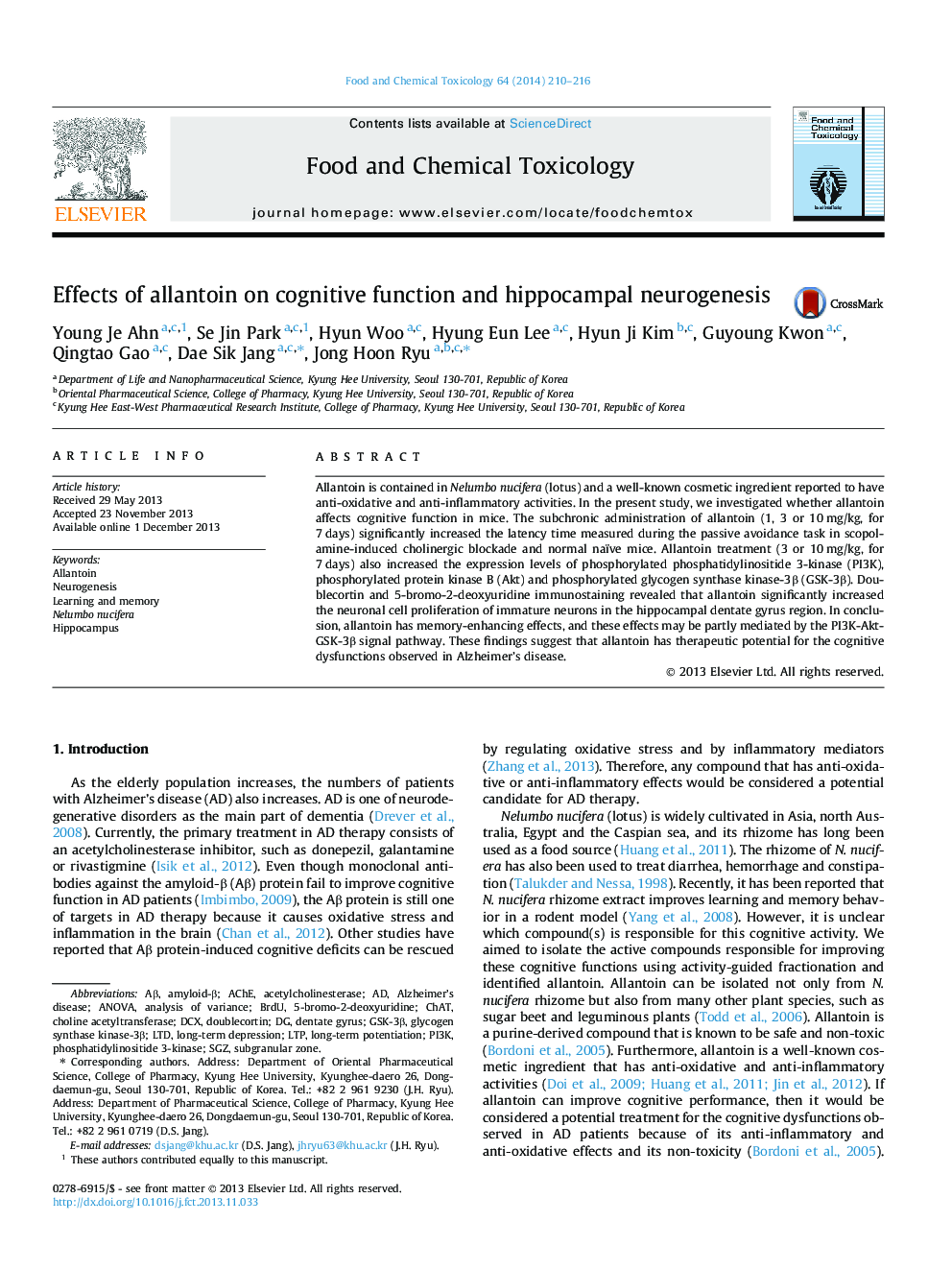| Article ID | Journal | Published Year | Pages | File Type |
|---|---|---|---|---|
| 5850899 | Food and Chemical Toxicology | 2014 | 7 Pages |
Abstract
Allantoin is contained in Nelumbo nucifera (lotus) and a well-known cosmetic ingredient reported to have anti-oxidative and anti-inflammatory activities. In the present study, we investigated whether allantoin affects cognitive function in mice. The subchronic administration of allantoin (1, 3 or 10 mg/kg, for 7 days) significantly increased the latency time measured during the passive avoidance task in scopolamine-induced cholinergic blockade and normal naïve mice. Allantoin treatment (3 or 10 mg/kg, for 7 days) also increased the expression levels of phosphorylated phosphatidylinositide 3-kinase (PI3K), phosphorylated protein kinase B (Akt) and phosphorylated glycogen synthase kinase-3β (GSK-3β). Doublecortin and 5-bromo-2-deoxyuridine immunostaining revealed that allantoin significantly increased the neuronal cell proliferation of immature neurons in the hippocampal dentate gyrus region. In conclusion, allantoin has memory-enhancing effects, and these effects may be partly mediated by the PI3K-Akt-GSK-3β signal pathway. These findings suggest that allantoin has therapeutic potential for the cognitive dysfunctions observed in Alzheimer's disease.
Keywords
SGZ5-bromo-2-deoxyuridinePI3KDcxGSK-3βAβNelumbo nuciferaAllantoinamyloid-βAChEAcetylcholinesteraselong-term depressionBrdUAlzheimer’s diseaseanalysis of varianceANOVAlong-term potentiationLTPdoublecortindentate gyrusphosphatidylinositide 3-kinaseLTDsubgranular zoneNeurogenesisHippocampusChATcholine acetyltransferaseGlycogen synthase kinase-3βLearning and memory
Related Topics
Life Sciences
Agricultural and Biological Sciences
Food Science
Authors
Young Je Ahn, Se Jin Park, Hyun Woo, Hyung Eun Lee, Hyun Ji Kim, Guyoung Kwon, Qingtao Gao, Dae Sik Jang, Jong Hoon Ryu,
